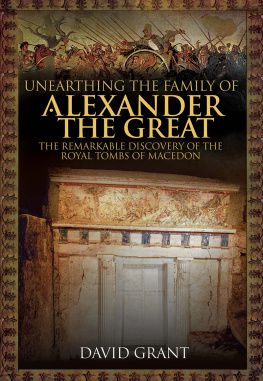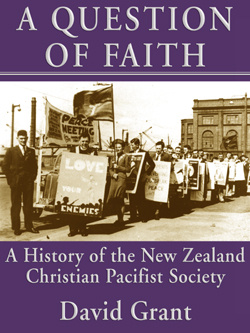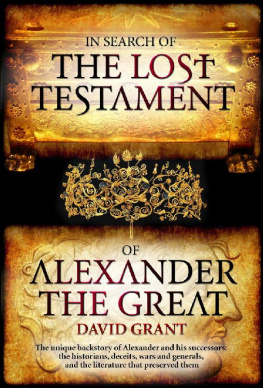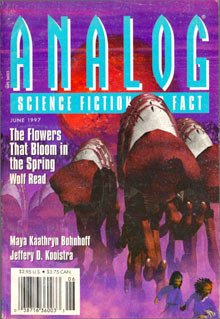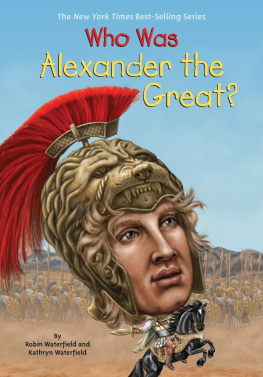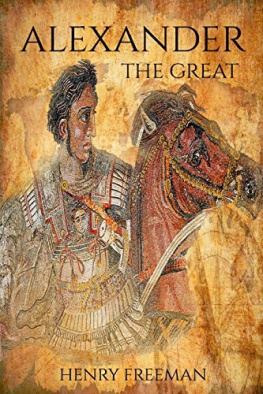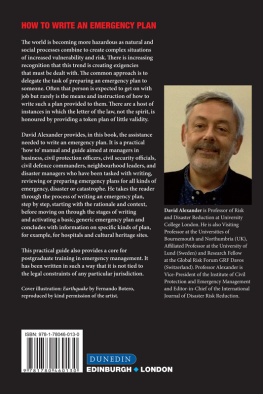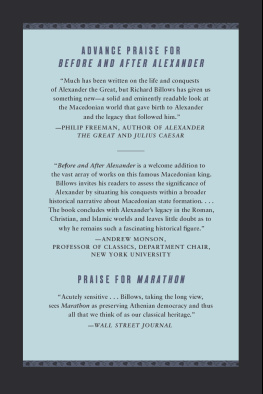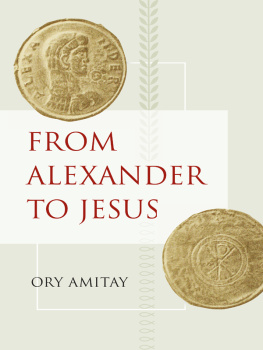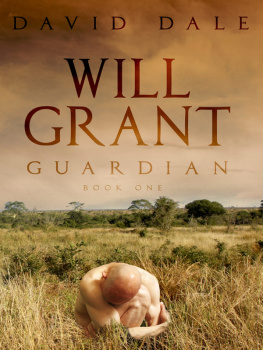Unearthing the Family of Alexander the Great
Unearthing the Family of Alexander the Great
The Remarkable Discovery of the Royal Tombs of Macedon
David Grant
First published in Great Britain in 2019 by
Pen & Sword History
An imprint of
Pen & Sword Books Ltd
Yorkshire Philadelphia
Copyright David Grant 2019
ISBN 978 1 52676 343 3
eISBN 978 1 52676 344 0
Mobi ISBN 978 1 52676 345 7
The right of David Grant to be identified as Author of this work has been asserted by him in accordance with the Copyright, Designs and Patents Act 1988.
A CIP catalogue record for this book is available from the British Library.
All rights reserved. No part of this book may be reproduced or transmitted in any form or by any means, electronic or mechanical including photocopying, recording or by any information storage and retrieval system, without permission from the Publisher in writing.
Pen & Sword Books Limited incorporates the imprints of Atlas, Archaeology, Aviation, Discovery, Family History, Fiction, History, Maritime, Military, Military Classics, Politics, Select, Transport, True Crime, Air World, Frontline Publishing, Leo Cooper, Remember When, Seaforth Publishing, The Praetorian Press, Wharncliffe Local History, Wharncliffe Transport, Wharncliffe True Crime and White Owl.
For a complete list of Pen & Sword titles please contact
PEN & SWORD BOOKS LIMITED
47 Church Street, Barnsley, South Yorkshire, S70 2AS, England
E-mail:
Website: www.pen-and-sword.co.uk
Or
PEN AND SWORD BOOKS
1950 Lawrence Rd, Havertown, PA 19083, USA
E-mail:
Website: www.penandswordbooks.com
Foreword
When a nation forgets where it came from, it no longer knows where it is going.
Author
O n an undisclosed autumn day in October 336 BC, King Philip II of Macedon was assassinated at the city of Aegae, the nations ancient capital and the burial ground of its kings. It was a world-shaking event that heralded in the reign of his son, Alexander the Great, whose decade-long campaign in Persia changed the course of history. Although Alexander died in Babylon at the tender age of 32, the complex intermarriages between the dynasties established by the brilliant generals he campaigned with ensured Macedonian successors dominated the Graeco-Persian world for generations. But following its defeat by Rome, Macedons legacy and its cities were gradually forgotten in the rolling hills and valleys of what is now northern Greece.
This is a unique account of rediscovery which unearthed the very heart of the ancient kingdom that rose to unparalleled heights and then sank to anonymous depths. It is a story of a royal family that indelibly stamped its identity on historys pages, recalling their lives, deaths, toils, triumphs and tragedies; the adage, archaeologists are digging up, not things , but people , was never so relevantly spoken as here.
This is equally a testament to the forensic work being undertaken to bring the Macedonian royalty back to life by a dedicated team of anthropologists, archaeologists, geneticists, material scientists and historians, who together, like stonemasons chiselling rough-hewn evidence into a statuesque form, are bringing this remarkable investigation to life.
The excavations at the modern town of Vergina, now identified with ancient Aegae, presented as many questions as they once yielded answers, when only faint whispers from the inhabitants of the tombs could be heard from intriguing clues found inside. Fortunately, advances in forensic sciences and a greater scrutiny in employing them are finally enabling the gold and silver, the paintings and papyrus, and the ancient bones to speak.
This book is dedicated to Professor Theodore Antikas, Laura Wynn-Antikas and the team about them, who, following the decades of work by earlier archaeologists, are attempting to identify and reunite the lost family of Alexander the Great with the nations first city and its royal tombs.
Chapter 1
The Day of Archangels
Patience is bitter, but its fruit is sweet.
Aristotle
I t was 8 November 1977, Archangels Day in Greece. Professor Manolis Andronikos, head of the archaeological excavations at the town of Vergina, looked about him at the dignitaries, police, priests and a gathering tribe of archaeologists descending upon the burial ground of the ancient city of still-debated identity he had been slowly unearthing for years. It was late in the excavation season and Andronikos had been planning to wrap up the years dig, with funds only available for a few more days of work. But now television cameras were arriving, tensions were high, and the weather was unseasonably mild and, thankfully, dry. He wondered what the day would reveal as he anxiously lit another cigarette.
The determined excavator was standing in what was left of the Great Tumulus, as the conspicuous man-made hill overlooking the town had been lately named. It was a mound that had defied him since 1962 when the first exploratory trenches were dug into the 100-metre-wide perimeter of soil and stone that has been compacted 12-metres high. But not until the spring of 1977 had sufficient funding and political support become available for a full-scale investigation of the tumulus, which was by now covered in 20-year-old pines.
Andronikos had logically assumed that its major secret lay under the hills hardest-to-excavate apex, where a hollow crater suggested the collapse of a significant structure below, when he and his colleagues, Professors Stella Drougou and Chrysoula Paliadeli, had begun probing the soil there in the late-August heat. Early exploratory trenches penetrated 8 metres down but still without results; the shallow crater at the summit turned out to be a time-consuming red herring and the disappointment of finding nothing more than virgin soil and scattered broken gravestones weighed heavy on the team. With no sign of construction or human activity below, they were beginning to wonder if the tumulus was a barren folly, and if it did hold subterranean secrets from antiquity, whoever buried them was outwitting modern archaeology.
Five new trial trenches were carved out, and over the next thirty-five days 18,000 cubic metres of earth were removed until a different soil texture told the excavators they had reached ancient ground level. But no structures were found; any tombs hidden by the tumulus must lie below the original terrain.
Manolis Andronikos was in the process of preparing an access ramp for the following seasons dig when he noted yet another change in the colour of the earth. The distribution of this redder soil, similar to that in the smaller mounds running across the adjacent cemetery, suggested an older and smaller tumulus originally stood under what was now the south-west perimeter of the great hill, so all efforts were concentrated there. Professor Drougou was studying the unearthed pottery and she immediately dated the sherds and bowls that lay about in hollows to the last quarter of the fourth century BC; here the charred remains of small animals suggested some form of burial ritual had been performed. A crudely constructed wall of unfired bricks was next encountered, but still it did not appear to be part of a recognizable structure.


